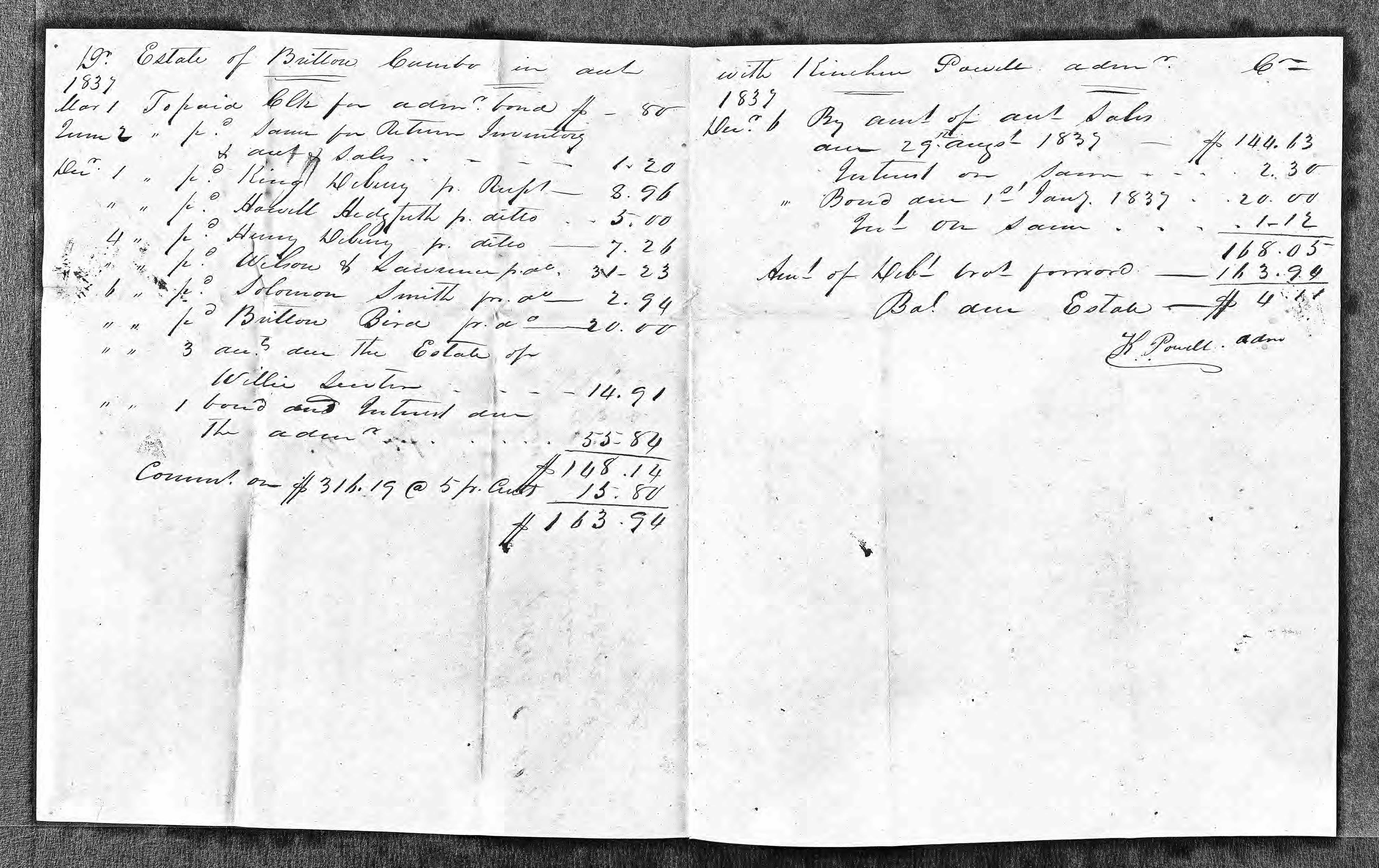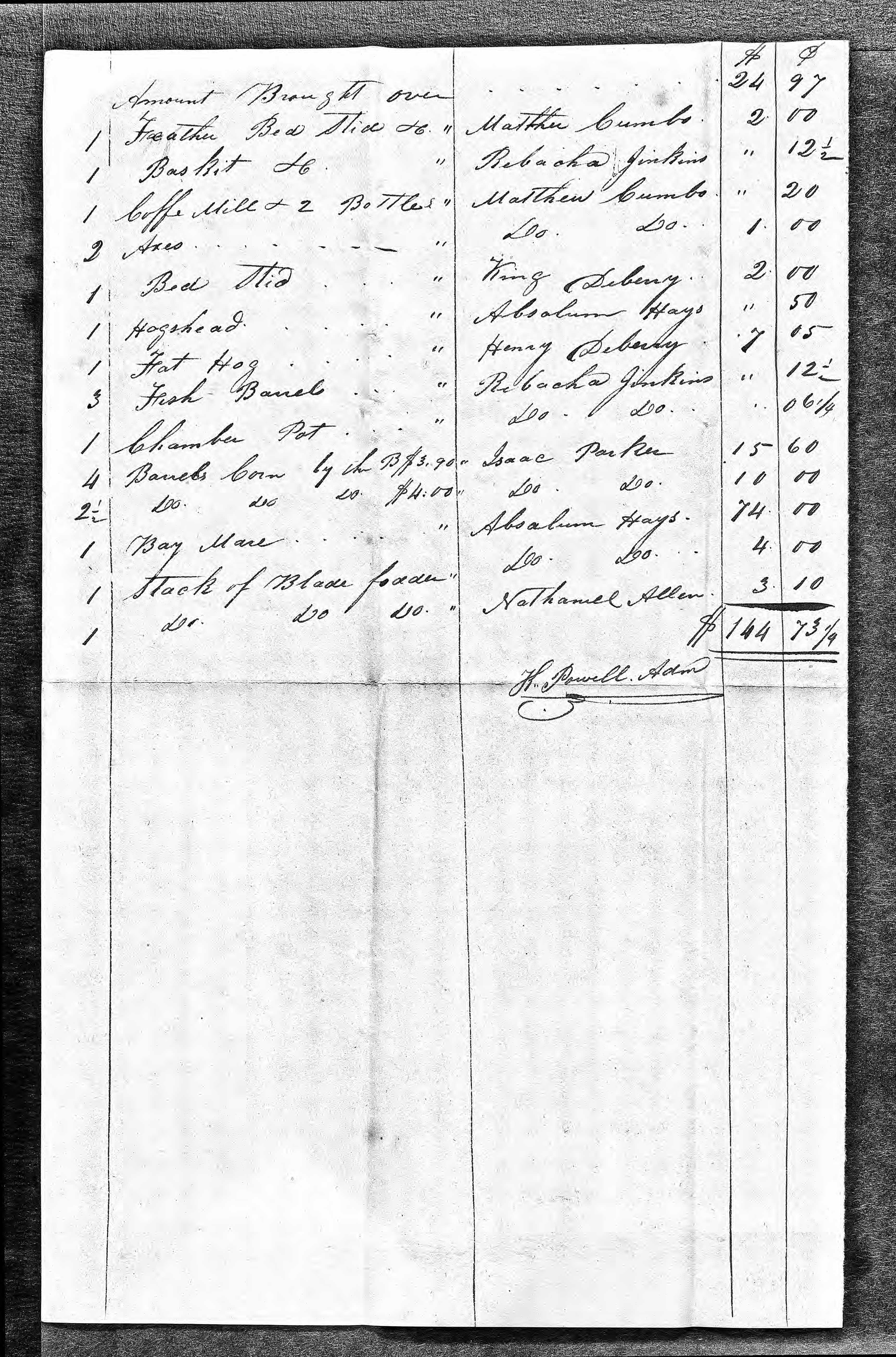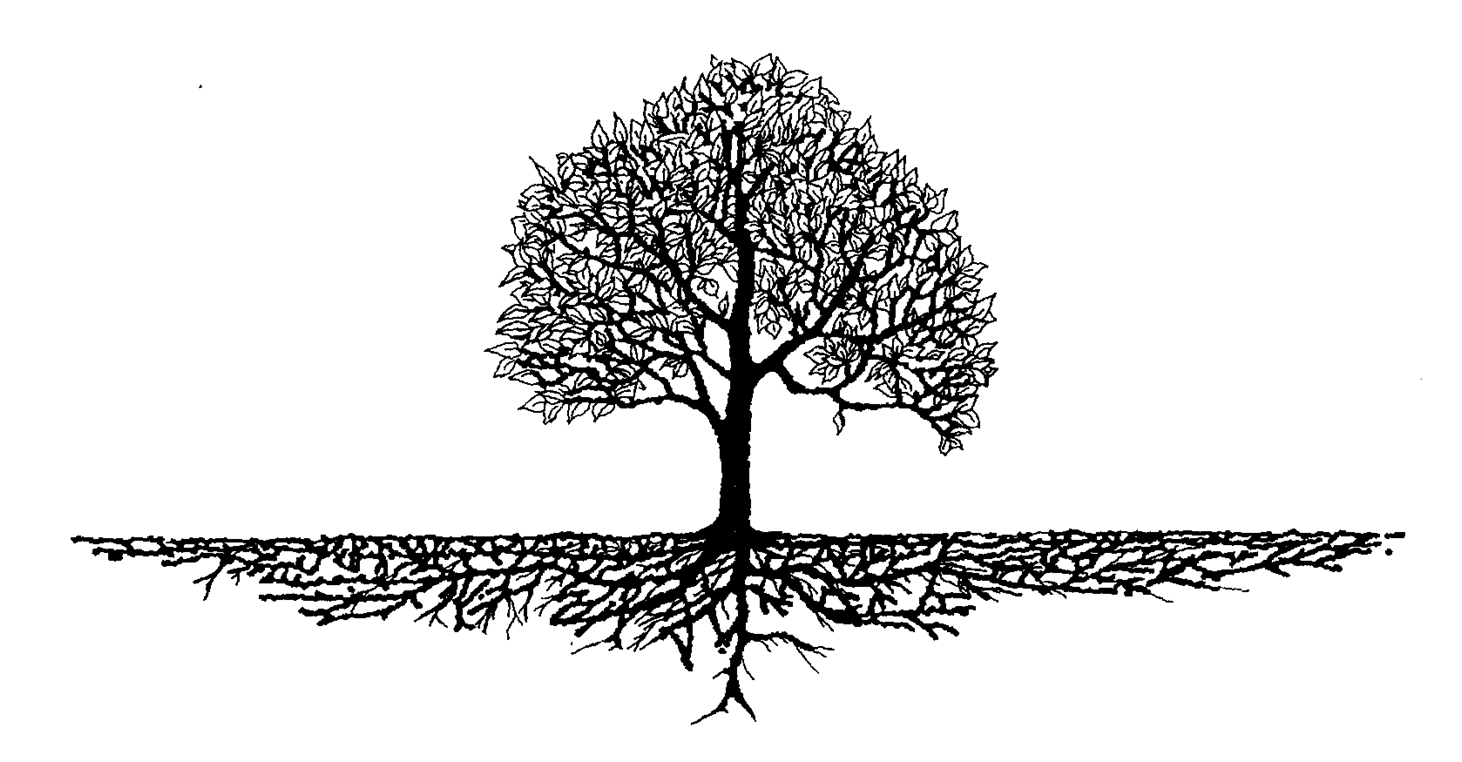Here’s what I have been able to uncover about the life of my 5th great grandfather Britton Cumbo Sr., a free man of color born 1776-1794 of Northampton County, North Carolina, through an examination of his 1837 estate records.
Here are the key items Britton Cumbo owned at the time of his death in 1837: a loom, a spinning wheel, two tables and 4 chairs, a shot gun, 3 beds, a chest, 111 lbs. of seed cotton, a fat hog, a bay mare, bridle & saddle, collar and harness. These are essential items for a small farm.
He was a cotton farmer
Peanuts, soybeans, corn, cotton, chickens, and hogs are core agricultural products that have been grown in Northampton County for hundreds of years. Assuming your average 1800s Northampton County cotton farmer could plant roughly 10 pounds of seed per acre, Britton Cumbo owned enough seed at the time of his death to farm around 10 to 11 acres of cotton crops. Britton would have fashioned the collar and harness he owned to his bay mare to pull a plow up and down his cotton field. The same horse could then be fitted with the bridle and saddle for riding into town to buy more seed or perhaps items for his family. He’d use the spinning wheel to create thread and yarn from the harvested cotton. He’d then use the loom to create fabric from the thread. The cotton, thread and fabrics could be sold for profit or used to make clothes for the family.
Also note that Britton Cumbo owned a shot gun. A shot gun was an essential item for a farmer back then. Just a few short years after his death however, the state would make it illegal for men like Britton to own a firearm. Around 1840, North Carolina passed a law prohibiting free coloreds from carrying fire arms. Given events in history, I’m little surprised the law hadn’t been initiated sooner. Remember, the Nat Turner rebellion had occurred in Southampton, VA (a county which sits right above Northampton state border between Virginia and North Carolina) in 1831. At any rate, the 1840 law was challenged and went all the way to the North Carolina Supreme Court in the State v Elijah Newsom in 1844. The court upheld the law because it ruled that free coloreds, while they were free from enslavement, were not considered citizens. This was but one of a succession of laws throughout the 1800s which increasingly restricted the rights of free people of color living in North Carolina and through the south.
He was a farm laborer or tenant farmer
Britton Cumbo at the time of his death owned around $160 of personal property but no real property. Personal property is movable property. It’s anything that can be subject to ownership, except land. Real property is immovable property – it’s land and anything attached to the land.
Britton was a farmer who owned no land, so he likely farmed someone else’s land as a laborer or tenant farmer. Tennant farming was a system where land owners allowed others to farm their land in exchange for payments back to the land owner either in the form of a portion of their crop yields, cash or a combination of both.
Whose land might he have farmed?
According to Britton Cumbo’s estate file, he was indebted to a number of people upon his death. Any one of them could have owned the farmland he worked.
Debt owed by the estate of Britton Cumbo Sr. were to King Deberry $8.96 (free colored), Howell Hedgepeth $5, Henry Deberry $7.26, Wilson & Lawrence $34.23, Britton Bird $20.00 (free colored), Solomon Smith $2.94, the Estate of Willie Senter $14.91, and the Administrator (Kinchin Powell), $55.84

The left lists people Britton Cumbo Sr. was indebted to at the time of his death. The right lists proceeds raised from the Britton Cumbo estate sale. The estate value remaining after creditors were paid was $ 4.11.
One creditor on this list that stands out to me is Henry DeBerry. According to the 1840 census, DeBerry was a white farmer who owned a large Northampton County plantation which included 37 slaves. This leads me to believe that he had vast land holdings a portion of which he could have hired out to tenant farmers. Or perhaps Britton worked for him as a farm laborer.
Another candidate is Jesse Morgan, a white farmer who purchased items at Britton Cumbo’s estate sale. When Britton died, his son Britton Cumbo Jr. (my 4th great grandfather) was hired to Morgan as an apprentice. The fact that the courts chose to entrust Britton’s son with Jesse leads me to believe that they could have had a friendship or close association while Britton was living, perhaps because Britton farmed Jesse’s land.
He had a diverse community of friends, associates and neighbors (FANs)
According to Britton Cumbo’s estate file, individuals who purchased items at the estate sale included: Nathaniel Allen (slave owner), Isaac Parker (Quaker, farmer), Absalom Hays (slave owner), James T. Maddrey (slave owner), Rebecca Jenkins (wife of farmer James Jenkins), Jesse Morgan (to whom Britton Cumbo, Jr. was apprenticed), Henry Deloatch (slave owner), Nancy Lewter (free colored woman who married free colored Moses Porter in 1838), King Deberry (free colored), and Matthew Cumbo (free colored).
Matthew Cumbo purchased multiple items for sale. He was in fact the only Cumbo to purchase items. I believe him to the same Matthew Cumbo who appears in an 1850 census record for Northampton County as a mulatto male born around 1810 married to Frances Cumbo (James) with a two year old daughter named Sarah. It is also my belief that Matthew Cumbo was Britton Cumbo Sr’s son and therefore Britton Cumbo Jr’s older brother.

Listing of individuals who purchased items at the estate sale
Pilgrimage to Northampton County
Last October I traveled to Northampton County on a pilgrimage in search of my Cumbo ancestry. While driving in and around Northampton, I felt compelled to stop my car and take a picture of this cotton field, representative of the sights I’d been soaking in all weekend. After research, this photo has renewed meaning to me. It is representative of the difficult life my Cumbo ancestors led in order to scratch out a living and raise a family which now extends to all of us. Now, each time I look at this photo I can’t help but be thankful to Britton Cumbo, Northampton cotton farmer, my 5th great grandfather.


Hello cousin Andre’….super research and deductions. I applaud your efforts to she much needed light on the life & times of our ancestors in Northampton County NC & surrounding areas. Always, a good read to me a native of Bertie & Northampton Counties. I think five of these area counties were derived out of the once huge “Bertie” County in SE NC in 1741 after the “Tuscarora Wars” with the White Settlers.
AJ – So Bertie, Northampton, Hertford – what were the other two counties that came out of Bertie?
I’ve read some of your other posts & I think you need to contact me. We may be able to exchange some useful information. This site won’t allow me to leave my email.
I’m on facebook if you’re interested.
Thank you! I really enjoyed your information. I am related to the Isaac Parker in your report. He is not a direct ancestor but an uncle. It is his father Isaac Parker that is my direct line. I would very much like to understand the history of this area better and someday go there and see the land. Thanks again Twila Owens
Twila, Thanks for the follow up. Now that you are aware of the connection, if you come across any references to Britton Cumbo or the Cumbos through your research on Isaac Parker, please let me know. Thanks Andre
Andre, in this article referencing Jesse Morgan: You know that there is a Morgan line that is direct descendant of Emanuell Cambow. Perhaps this Jesse Morgan was originally a Cambow/Cumby . . .as there is a beginning somewhere to that Morgan line and my Morris line is also of the same beginnings. . .so Morris and Morgan lines connect somewhere in history to Emanuell. . .perhaps it is with Britton. I know you and I are cousins as well. Regardless of sharing the name, we do share the same YDNA and just simply do not know the accurate connection. Thanks for all you research!
Ann, Thanks for your follow up and excited to connect. The potential connection between Jesse Morgan who apprenticed my fifth great grandfather Britton Cumbo and the Morgans your Morris line match is really interesting, worth exploring further for sure. I look forward to advancing Cumbo family research together with you.